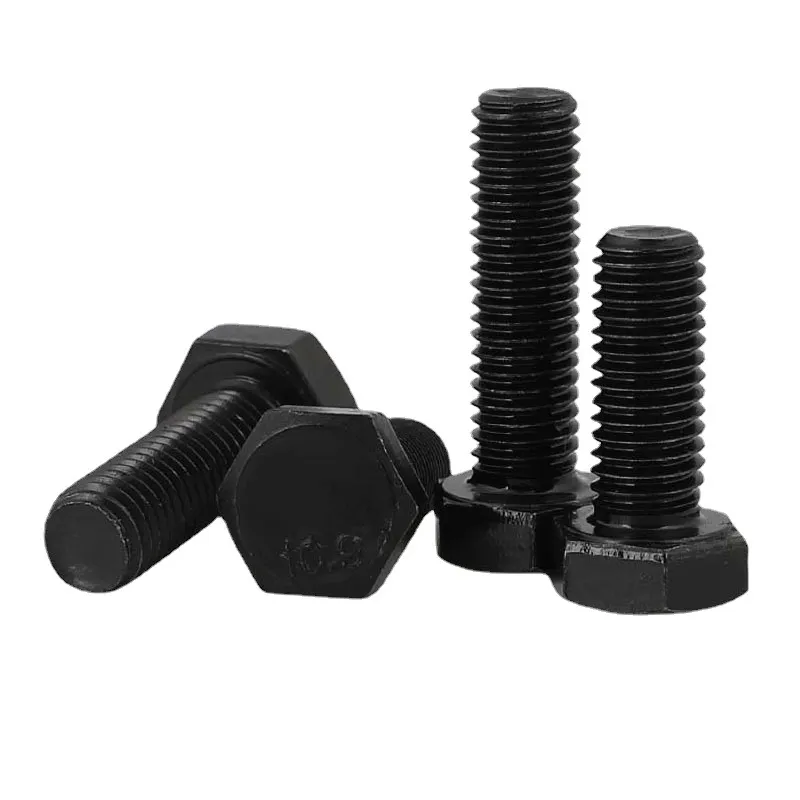

Self-Locking Flange Nut for Secure and Reliable Fastening Solutions
Dec . 03, 2024 22:41 Back to list
Self-Locking Flange Nut for Secure and Reliable Fastening Solutions
Understanding Self-Locking Flange Nuts A Comprehensive Guide
In the world of fasteners, self-locking flange nuts stand out due to their unique design and functionality. These specialized nuts offer higher security and stability for various applications, making them essential components in numerous industries, including automotive, aerospace, construction, and machinery. This article delves into self-locking flange nuts, exploring their design, advantages, applications, and the reasons for their growing popularity.
What is a Self-Locking Flange Nut?
A self-locking flange nut, often referred to as a flange lock nut, is a combination of a standard nut and a flanged base. The flange acts as a built-in washer, distributing the load over a larger area and providing additional resistance against loosening due to vibration and torque forces. The self-locking feature is typically achieved through specific design elements, such as nylon inserts, serrated edges, or geometric shapes that increase friction when the nut is tightened.
Advantages of Self-Locking Flange Nuts
1. Vibration Resistance One of the primary advantages of self-locking flange nuts is their enhanced resistance to loosening caused by vibrations. This is particularly important in high-vibration environments, such as automotive engines or aircraft components, where standard nuts may fail.
2. Load Distribution The flanged design allows for better load distribution compared to standard nuts, reducing the risk of damage to the materials being fastened. This characteristic improves the overall strength of the assembly and helps prevent deformation over time.
3. Ease of Installation Self-locking flange nuts can often be installed without the need for additional washers, streamlining the assembly process. The built-in flange simplifies installation and reduces the number of components needed, saving labor costs and time.
4. Corrosion Resistance Many self-locking flange nuts are made from materials resistant to corrosion, such as stainless steel or specific coatings. This durability is crucial for applications exposed to harsh environmental conditions.
5. Cost-Effectiveness While self-locking flange nuts may have a slightly higher upfront cost than standard nuts, their benefits in terms of longevity and reliability can lead to cost savings in the long run. Reduced maintenance and fewer replacements make them a wise investment.
self locking flange nut

Applications of Self-Locking Flange Nuts
Self-locking flange nuts are versatile and find applications in various fields
- Automotive Industry Used in engine assemblies, chassis components, and suspension systems, these nuts ensure that critical joints remain secure despite the constant vibrations and stresses experienced during operation.
- Aerospace In the aerospace sector, where safety and reliability are paramount, self-locking flange nuts are prevalent. They are employed in aircraft frames, landing gear systems, and propulsion systems, where failure is not an option.
- Construction and Heavy Machinery These nuts are also widely used in construction for fastening metal structures, scaffolding, and heavy equipment, where stability and safety are crucial.
- Electronics In certain electronic applications, self-locking flange nuts are used to secure components and housing, maintaining structural integrity while minimizing the risk of loosening over time.
Why the Growing Popularity?
The increasing recognition of the importance of safety, reliability, and efficiency in industrial applications drives the popularity of self-locking flange nuts. As technology advances and industries seek to optimize performance, the demand for fasteners that provide enhanced security against loosening and improved load management continues to rise.
In conclusion, self-locking flange nuts represent a vital advancement in fastener technology. Their unique design and inherent advantages make them indispensable in a wide range of applications, ensuring safety and reliability in critical systems. As industries evolve and the need for more durable and efficient components grows, self-locking flange nuts are likely to play an increasingly important role across various sectors. Understanding their features and applications will undoubtedly benefit engineers, designers, and manufacturers alike.
Latest news
-
High-Strength Hot-Dip Galvanized Bolts-Hebei Longze|Corrosion Resistance&High Strength
NewsJul.30,2025
-
Hot Dip Galvanized Bolts-Hebei Longze|Corrosion Resistance&High Strength
NewsJul.30,2025
-
Hot Dip Galvanized Bolts - Hebei Longze | Corrosion Resistance, High Strength
NewsJul.30,2025
-
High-Strength Hot Dip Galvanized Bolts-Hebei Longze|Corrosion Resistance, Grade 8.8
NewsJul.30,2025
-
Hot Dip Galvanized Bolts-Hebei Longze|Corrosion Resistance,High Strength
NewsJul.29,2025
-
High-Strength Hot Dip Galvanized Bolts - Hebei Longze Metal Products Manufacturing Co., Ltd.|corrosion resistance&high strength
NewsJul.29,2025

